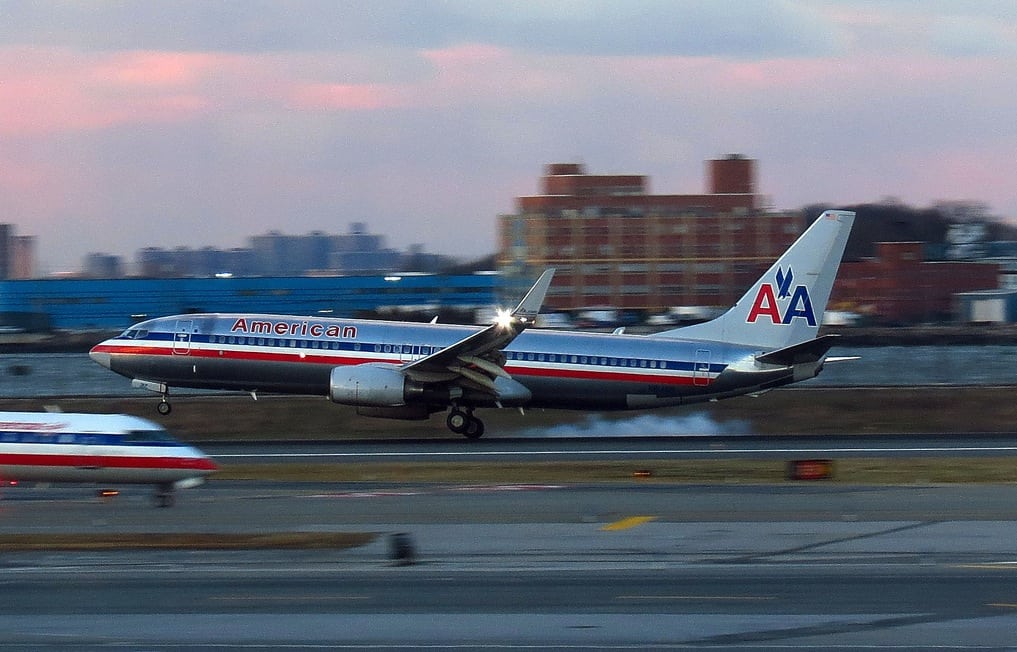Skift Take
US Airways would be the clear winner from the merger, but the combination wouldn't really solve American's weakness in Japan and China as US Airways doesn't give American all that much international lift.
An American Airlines-US Airways merger could pose a significant challenge to Delta Air Lines, particularly in relation to Delta’s new hub at LaGuardia and indirectly at Atlanta-Hartsfield Airport, too.
Delta boasts a substantial grip on LaGuardia, where it’s adding 100 daily flights, building a bridge to connect Terminals C and D, and last year opened its third Sky Club, part of a $160 million investment to upgrade facilities there.
Hell-bent on its New York strategy, Delta also announced today that it is adding 11 gates at JFK, and 75,000 square feet of space to Terminal 4’s Concourse B in cooperation with the Port Authority of New York-New Jersey.
Playing the slots
While some analysts believe that Delta’s LaGuardia expansion, the largest by any airline there in years, will give Delta a commanding edge, Henry Harteveldt, travel industry analyst at Hudson Crossing, argues that an American Airlines-US Airways combination could give Delta a run for its money at LGA despite the fact that US Airways ceded 132 slot pairs to Delta at the airport in an historic slot swap in 2011.
Delta currently controls 521 (45.5%) of the 1,145 weekly slots pairs at LaGuardia, American operates 239 (20.9%), and US Airways controls 125 (10.9%), according to the Port Authority.
That means the combined muscle of American and US Airways in a merger would control 364 slot pairs (31.8%). That’s not as large as Delta’s 45.5%, but it counts for a lot in New York’s congested air space.
Delta’s and American-US Airways’ slot pair numbers at LaGuardia dwarf all other airlines there, which combined control 260 (22.7%) of the slot pairs.
Another analyst, who declined to be identified, wasn’t so sure about a merged American’s clout.
“Delta’s moves at LaGuardia really give them a scale advantage,” the analyst says. “I think its new facilities at LaGuardia would really propel Delta ahead, and make American’s challenge more difficult.”
The Philadelphia story
Harteveldt also sees other scenarios playing out in the Northeast should a merger take place, and Philadelphia (PHL) would be a beneficiary.
Philadelphia Airport, which is undergoing revedevelopment, is a US Airways hub, and Harteveldt believes that an American Airlines-US Airways combo could transform PHL into more of a transatlantic gateway for connecting passengers for the new American.
That will also help American with its JFK problems, where it flies mostly long-haul with modest feed.
Harteveldt says a merged American Airlines could focus at JFK on passengers flying directly into and out of an airport, which is more profitable than highly competitive routes enabling connecting flights.
Atlanta squeeze play
Meanwhile, given US Airways dominance in Charlotte and American’s hub in Miami, the new American might “blanket Delta in Atlanta and compete more aggressively,” Harteveldt says.
US Airways, though, has a lot more to gain from a merger than American, Harteveldt says, adding that American’s gains would mostly be domestic, and thus the merger does little to solve American’s problems in China and Japan, where its presence, even through Oneworld, is relatively modest.
Regarding hubs, Harteveldt says American would retain its own hubs in Dallas/Fort Worth, Chicago O’Hare, Miami, JFK and Los Angeles, and add US Airways’ hubs in Charlotte, Philadelphia and Phoenix. Reagan-National in Washington is a US Airways focus city.
Phoenix likely would be in store for some trimming as American would consolidate the two airlines’ headquarters into Fort Worth, and could reduce flights.
The Daily Newsletter
Our daily coverage of the global travel industry. Written by editors and analysts from across Skift’s brands.
Have a confidential tip for Skift? Get in touch
Tags: american airlines, delta air lines, us airways
Photo credit: An American Airlines 737-800 at LaGuardia in January 2013. Daniel Betts / Flickr.com
